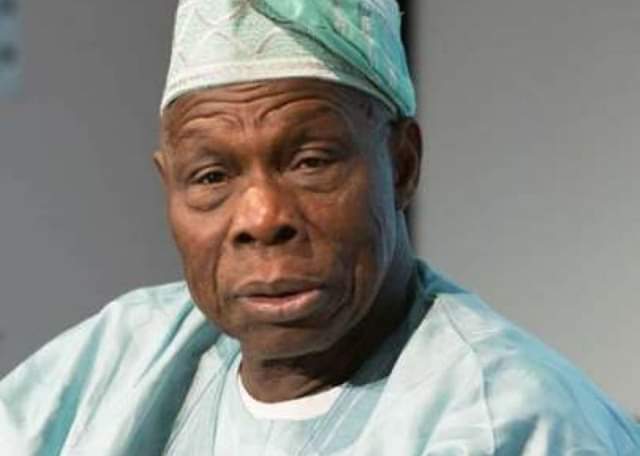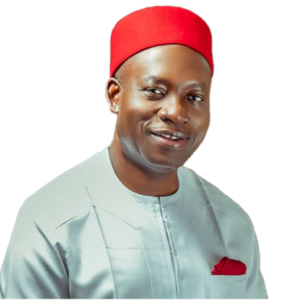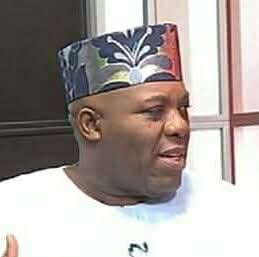
Ex-President Obasanjo last week warned members of our suicidal ruling political elite that continue to live in denial after turning our country from a federal to a unitary state, of a possible violent disintegration of the country if the demand for a return to a true federal arrangement is allowed to degenerate to quest for self-actualization by increasingly frustrated federating ethnic nationalities. The agitation, which according to him was for a true federalism when he was first elected in 1999, has today moved to demand for restructuring warning that, “If we don’t address it they may go from restructuring to self-determination and this will be a serious problem”.
It is to the credit of Obasanjo that he has always made timely intervention at every critical period when our nation faces crisis of nationality. He was on hand to end the three years civil war in 1970. In 1979, he became the first African military leader to voluntarily cede power to a civilian administration. In 1999 after Babangida’s ‘army of anything is possible’ had brought the nation to her knees, Obasanjo came with a promise of a new dawn.
But that is only one side of the coin for a nation where the people are said to suffer from collective amnesia. A journey through memory will also show not only where the rain started to beat us as a people, but also how Obasanjo through malice and mischief has in spite of those historic interventions, prolonged our nightmare since his first coming as military head of state in 1976.
Much as we blame the colonial masters for our woes, they, unlike our successive political and military leaders, exhibited greater sincerity in addressing our crisis of nationality. They were the first to remind our aspiring new inheritors of power who had argued our differences was exaggerated by accident of colonial rule that we are a multi-cultural society with divergent groups at different levels of cultural development. In this regard, Hugh Clifford, the then Nigerian Governor-General made a distinction between those he described as ‘cannibals inhabiting some hilltops, the anti-social tribes and some naked warriors of the jungle”. Consequently, he in his address to Nigerian Council in 1920 went on to advocate “a regional government that secures for each nationality, each separate people, the right to maintain its identity, its individuality and its nationality and its own chosen form of government which have evolved for it by the wisdom and the accumulated experiences of generation of its forbears”.
But unlike the Yoruba who by nature are federalists and have been consistent in their demand for “a restructured Nigeria with constituents powers over law and order, education and public information and protection of rights of indigenes as provided for under the UN charter”, all through the various constitutional conferences in the country including the 1946 Richards constitution and the 1948 Ibadan conference set up to review it, other dominant ethnic groups have continued to live in denial. The north initially wanted a loose federation or a federal arrangement it can control, and the east and NCNC up till 1959 preferred a unitary system.
But of all the forces against a restructured Nigeria especially after the collapse of the independence constitution in 1966, none has succeeded in frustrating Yoruba’s quest for true federal arrangement as Obasanjo. In 1979, he derided the late Chief Obafemi Awolowo, whose ‘Path to Nigeria Freedom’ to date remains the best answer to our crisis of nation-building by claiming the best man didn’t need to win that year’s election and by his own admission supported Alhaji Shehu Shagari who was to be later declared winner through a Supreme Court twelve-two-third judgment that Justice Ayo Irikefe said could not be cited. In 1993, he betrayed MKO Abiola, a Yoruba and his Egba kinsman who had won a pan-Nigeria mandate annulled by General Babangida, claiming he was not the messiah Nigerians were expecting. For wanting for the others the good things of life they want for themselves, Obasanjo waged a war of attrition against his Yoruba people, their leadership and the tendencies they represent.
But in Yoruba nation where leadership is earned, the people know their leaders. Obasanjo who had up to 1999 never identified with the aspirations of his Yoruba people was as expected roundly rejected in the Yoruba nation where he lost his ward election in 1999. After literarily climbing the palm tree from the top by winning the presidential election without a political base, he intensified his war of attrition against the Yoruba. He infiltrated Afenifere, the Youruba apex social cultural group and brought the elders forum to grief with the death of Bola Ige, its deputy leader who was killed like a chicken in his bedroom as Obasanjo’s minister of justice by yet to be identified criminals.
In 2003, Obasanjo reneged on the promise he made to Yoruba leaders while seeking their support for his second term re-election bid. In his book titled “‘Battle lines: Adventures in Journalism and Politics’, Chief Olusegun Osoba, former governor of Ogun State revealed how Olusegun Obasanjo sought and secured the backing of Yoruba for his re-election after promising to restructure Nigeria. The condition presented to Obasanjo according to Chief Segun Osoba among others were “the restructuring of the Nigerian federation, devolution of power, including moving some items from the exclusive to the concurrent list and ensuring fiscal federalism”. According to him “When all these conditions were tabled before Obasanjo, he assured us that he was satisfied with them and that he clearly identified with them”. He later outmaneuvered the Afenifere leadership rigging out all the AD governors with the exception of Lagos State governor, Bola Tinubu.
Obasanjo today wants his Yoruba people to believe he has now seen the light and like the Biblical Saul turned St. Paul decided to defend the ideals he once denounced and did everything to undermine. I think it is in is in this regard many have been saying, the Yoruba although long victims of Obasanjo’s vindictiveness, must separate his important message which today resonates with theirs from the messenger.
But as Obasanjo puts on his armour as leader of Yoruba crusade for true federalism, it is important to place on record how his blind fury and policies designed to emasculate his own people paradoxically resulted in a prolonged nightmare for the nation.
The sacrifice of meritocracy through promotion of quota system of admission to universities, application of federal character principle in recruitment into the civil service and over centralization through federal seizure of states’ educational and economic institutions, all targeted at his Yoruba nation have led Yoruba youths to abandon the country for Obasanjo and the tendencies he serves and moved in droves to other parts of the world. The loss of our universities, our hospitals and our bureaucracy is the gain of Canada, USA and South Africa among other advanced nations where highly skilled Yoruba youths find satisfaction and relevance.
Activities of Boko Haram in the northeast, herdsmen’s mindless killings in the middle belt region and banditry in Katsina and Zamfara and southern Kaduna would have been greatly curtailed in a restructured Nigeria where states are empowered to protect life and properties of their people.
Infrastructural decay across the country, collapse of the health and educational sectors and massive corruption are the result of a dysfunctional centre that instead of promoting fiscal federalism dispenses seized federating states’ resources to promote indolence among states.
By Jide Oluwajuyitan












